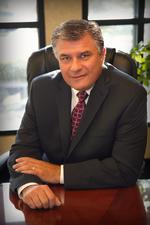Proving a medical malpractice claim can be quite difficult. Except under unusual circumstances, the task of proving negligence on the part of a physician or medical provider must be established by expert witness testimony. In fact, experts are so vital in malpractice cases that without the right credible expert or experts, an injured person cannot succeed in proving a case of medical negligence. Many times, these cases become a battle of the experts from the witness stand.
Why Is Expert Testimony Necessary?
Expert testimony is used to prove two key elements of a medical malpractice case:
- Did the defendant healthcare provider follow the standard of care applicable to treating patients with similar illnesses or injuries?
- Did the defendant healthcare provider’s failure to follow the standard of care cause verifiable harm to the patient?
Even if a medical negligence claim seems obvious, expert testimony is required to evaluate and assess the evidence which is outside of the common knowledge of the jurors evaluating the case. For example, even though a patient was diagnosed with cancer after her primary care physician gave her a clean bill of health, it's not immediately obvious that this failure to diagnose was negligent or that it was a substantial factor in causing harm to the patient. Some expert witness physicians might consider the misdiagnosed condition within the standard of care despite the doctor being in error in his findings. When developing a medical negligence case, your attorney will explain the necessity of obtaining and paying for an expert witness for your specific circumstances.
Who Qualifies as an Expert?
It's not enough to simply ask a second doctor, surgeon, or nurse to be your expert. Most medical malpractice cases involve specialized fields. A  qualified expert is someone who has extensive practical experience, and often academic credentials to give a comprehensive and informed opinion on the subject matter.
qualified expert is someone who has extensive practical experience, and often academic credentials to give a comprehensive and informed opinion on the subject matter.
It is generally preferable to have testimony from someone who is actively practicing medicine, as opposed to someone who spends the majority of his time testifying in malpractice cases. Most important is that the expert retained is a physician or medical professional within the same field as that of the defendant physician or nurse. Having a qualified physician review the case early in the process helps identify the issues before embarking in costly litigation.
How Do Experts Prepare Their Testimony?
In a malpractice case, experts base their testimony on a review of medical records from the patient's file. If available, these experts also review depositions and discovery documents taken or prepared in the course of the litigation. After reviewing all of the available records, they develop their opinions on the issues of whether the defendant, or any other person, was negligent, or committed malpractice, and whether that conduct caused injury to the patient. The issue of negligence is based upon the medical standard of care applicable to the services rendered to the patient. These experts offer insight as to what was performed and what should have been done. Most often two experts will testify completely opposite of each other and render opinions which contradict each other. A jury needs to decide which expert’s opinion persuades them to make their decision as to which side should prevail.
Traditionally, experts were given absolute immunity from civil liability in regards to their testimony. However, this is no longer the case. An expert who is found to have given false, inaccurate, or misleading testimony can often be held liable for the consequences in regards to the outcome of a malpractice case. Some professional associations for healthcare providers, such as the American Academy of Orthopaedic Surgeons (AAOS), also have their own sanctions for expert witnesses who fail to provide good faith testimony.
Experts are compensated for the time it takes to prepare their testimony, as well as their travel expenses. In most cases, this expense will be advanced by your attorney's office to allow your case to proceed in a timely fashion. If you win your case, you'll need to pay your lawyer's contingency fee as well as the cost of expert testimony and other expenses related to preparing your case. These expenses are deducted from a settlement or paid judgment.
When Do You Need Your Experts?
Both the plaintiff and the defendant can have one or more experts involved in their case. They are legally required to provide the basis of the expert testimony to the court before the trial starts. Since medical malpractice cases have a strict statute of limitations, it's crucial that you take action as soon as possible. If you believe you are the victim of medical malpractice after receiving medical treatment, the Inland Empire Law Group’s team of personal injury and medical malpractice attorneys can help. Call us at (888) MY IE LAW to schedule a consultation.
|
Related Links: |

